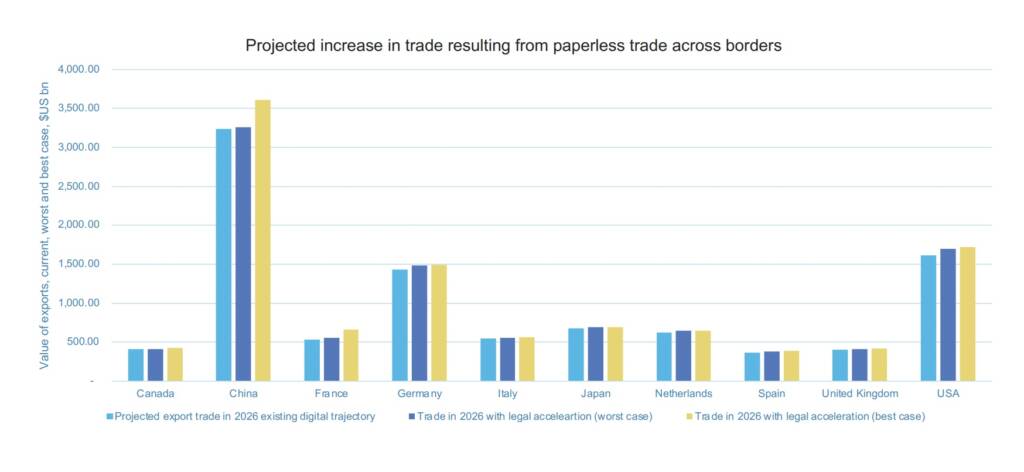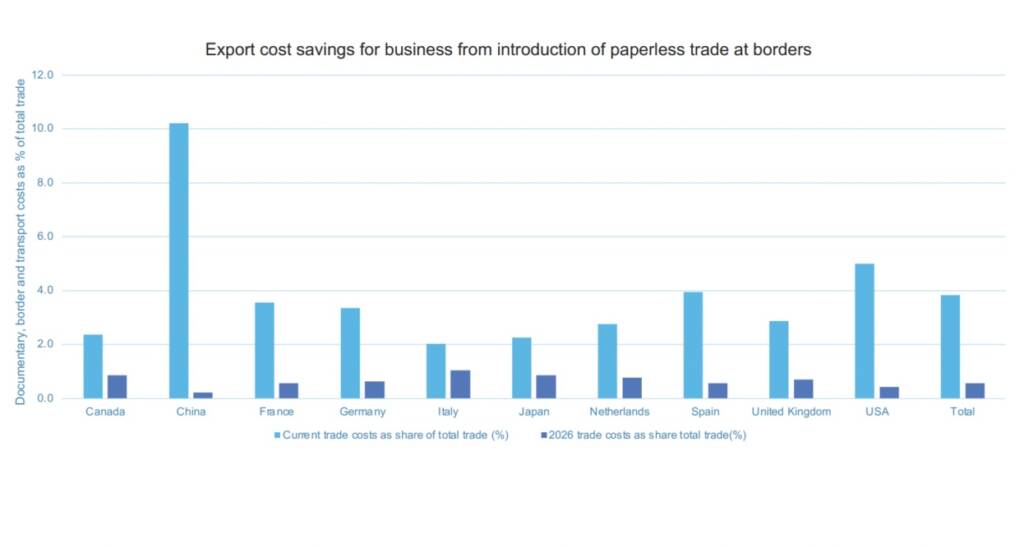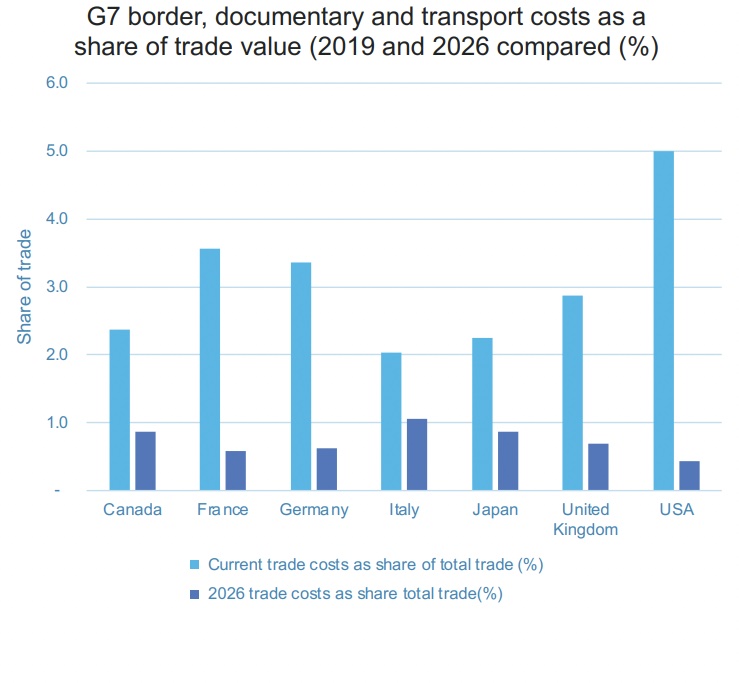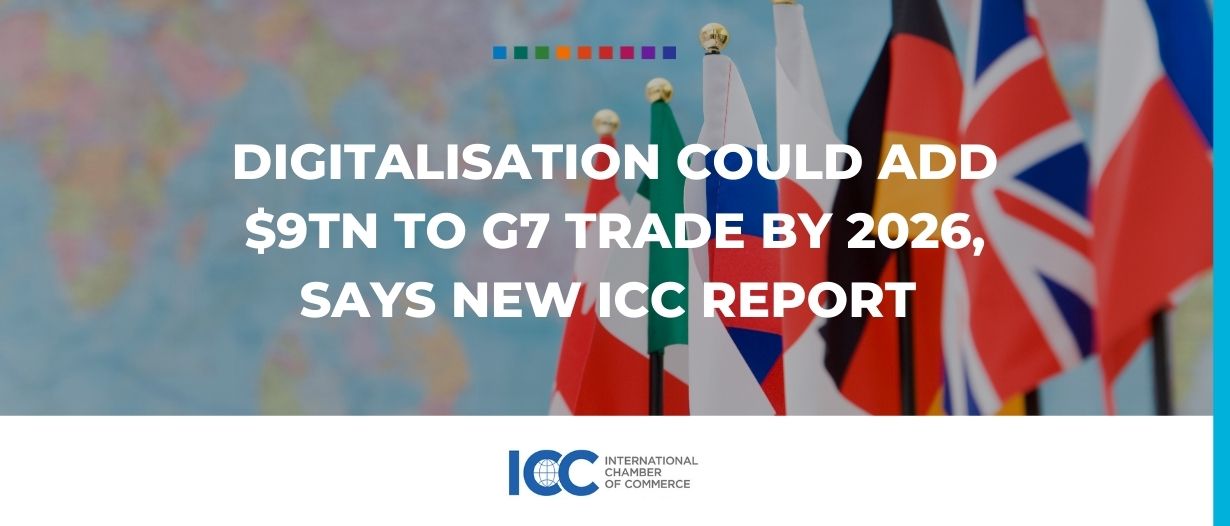The value of trade between G7 countries could increase by $9 trillion over the next five years with full digitalisation, according to a new report by the International Chamber of Commerce (ICC).
The report, released yesterday, estimates that if G7 countries can deliver on legal reform, standardisation, and adoption of digital records, then trade between them could rise by about 43% above its 2019 value by 2026.
The report also found that, at current rates, trade growth throughout the G7 is expected to be “very flat”, but this could change significantly with digitalisation.

Paperless trade facilitation could create $267 billion of additional exports compared to base forecast by 2026, and digitising the trade ecosystem could create as much as $6 trillion in extra exports by 2026.
“A typical trade transaction involves up to 27 documents, nine of which relate to the transfer of possession,” the report says.
“In total, 4 billion documents move across the trade ecosystem at any given time, creating inefficiencies that slow trade down and hamper growth and innovation.”

The report adds that the paper-intensive nature of a typical trade transaction can result in costs of up to $80,000 per transaction, and can take up to three months to process.
However, paperless trade facilitation could reduce costs as a share of total trade across the G7 by 76%, the report found.
Currently, all costs associated with G7 trade represent 3% of the value of trade, but this could be reduced to 0.7% by 2026 through digitalisation of the trade ecosystem.

Time spent on bureaucracy could also be saved by digitalisation too, and in no small measure.
The report estimates that digitalisation could reduce time spent on bureaucracy by 81% across the G7, and could cut the number of days associated with border compliance from an average of 25 days to less then one, and reduce average compliance times from 2.3 days to less than half a day.
Such a saving would also unlock resources for other, under-served priorities, such as promoting new sustainable trade solutions.
For example, the ICC estimates that, at present, only $1 in every $5 trade dollars within the G7 is associated with positive sustainable development goals.

Going digital
The move towards a digital-first framework for international trade is a priority for the G7.
In May of this year, digital and technology ministers of the G7 agreed to a framework that will champion the work of the United Nations Commission on International Trade Law (UNCITRAL), and will promote the adoption of its Model Law on Electronic Transferable Records (MLETR).
The MLETR will also give electronic trade documents – such as the electronic Bills of Lading (eBL) – the same legal status as their paper-based counterparts.
“Paper-based transactions, which still dominate international trade, are a source of cost, delay, inefficiency, fraud, error, and environmental impact,” the ministers said in a joint statement.
“It is our shared view that by enabling businesses to use electronic transferrable records, we will generate efficiencies and economic savings.
“This will strengthen the resilience of our global economic system and play a crucial role in trade recovery across the G7.”
By the end of this month, G7 governments are expected to publish a report on domestic legal barriers to the use of electronic transferrable records, and will offer solutions to address these challenges in their report.
The report will also consider any further legal issues that may require international collaboration, and any regulatory issues that may require collaboration between the public and private sectors.


































